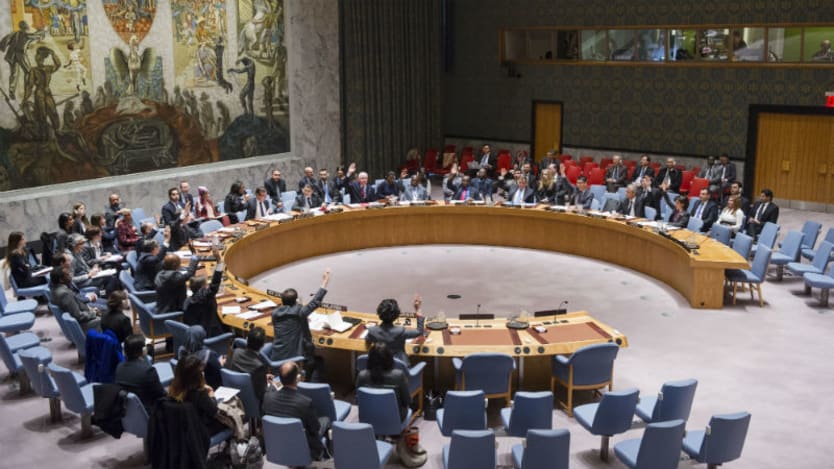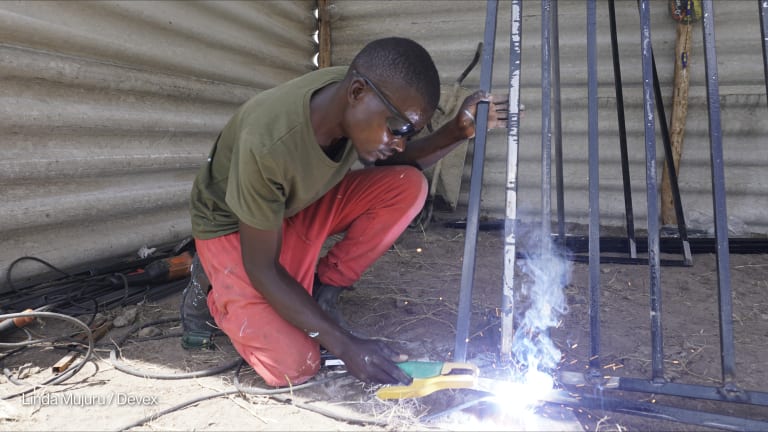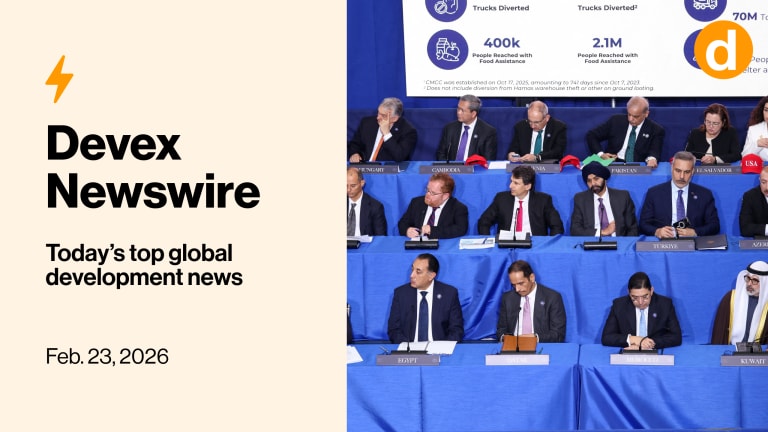Opinion: What the UN resolution on youth, peace, and security means for humanitarians

Dec. 9 marked the second anniversary of the United Nations Security Council resolution 2250 on Youth, Peace and Security, the first such declaration, which yet again conflates youth with security risks. As Youth Project Manager with the Norwegian Refugee Council in Jordan, I put the potential of youth and their ability to support their communities at the centre of our work. Rather than repeating the deficit model of youth being at risk — of extremism for example — or focusing solely on problems they face, I am continuously inspired by Syrian refugee youth who contribute to their communities by supporting their families, being financially productive, helping others and volunteering.
See more related topics:
► Opinion: 3 ways to invest in youth optimism
► Allow youth to be radical in the fight against radicalization, experts say
► Bloomberg says cities will lead in youth development, fighting extremism
For humanitarians, this raises the question of how to adopt a positive perspective on youth development which is disentangled from the security discourse and broader than peace processes and post-conflict reconstruction, while drawing on the blueprint which was set out by the U.N. Security Council.
Here’s what Resolution 2250 calls for — and how humanitarians can deliver on these commitments.
1. Participation
Not limited to participation in peace negotiation, the resolution calls for youth representation in local to national institutions.
In humanitarian work, youth are increasingly included as a distinct group with their own perspectives in community engagement. Participatory assessments and safety audits in Zaatari refugee camp, in Jordan, for example, include contributions from youth in the community. Beyond the humanitarian arena, youth must first be recognised by the community as having something positive to contribute, before they can participate in social structures of governance. For youth participation to be meaningful, they require the relevant skills to reflect on their context, to understand the situation of the peers they represent, and to advocate for their needs.
2. Protection
Resolution 2250 calls for the protection of youth civilians in conflict and post-conflict settings and from gender-based violence. The resolution highlights the vulnerability of youth in this regard, but the role that both male and female youth can play in protection processes could be further emphasised.
Youth programming in humanitarian contexts can provide a protective space of mentorship and peer support, including through awareness raising and gaining competencies for self-advocacy. NRC’s Youth Programme in Irbid and Mafraq, Jordan, includes a social initiatives component, in which youth are trained in identifying community needs and project design. One group of female youth chose to share their experience of early marriage in awareness sessions, in a powerful peer-led approach to this challenging issue, while another groups of males led sessions on psychosocial support.
3. Prevention
Resolution 2250 calls for quality education for youth to support a peaceful and prosperous society. Youth education therefore plays the dual roles of building competencies for social cohesion and civic engagement, while also developing skills for economic engagement. Training in social cohesion skills, such as understanding differences, and communication skills, form integral components of youth education in the humanitarian sector. “I learned how to deal with people, how to absorb anger, I learned about myself. I learned how to stay calm and [figure out] what is the matter with me, to act instead of react. I learned how to deal with people … ,” as put by a female graduate from NRC Youth Programme, in Zaatari camp, in Jordan.
For NRC, these transferable personal skills are a key element of the Youth Programme in Zaatari and Azraq camps, where all students of vocational training participate in life skills courses to support their active role in the community.
4. Partnerships
While the resolution focuses on partnership in peacebuilding to prevent violent extremism, partnership with youth themselves facilitates meeting their aspirations and those outlined across the resolution. Engaging youth in implementing activities, including as volunteers, is an approach to partnership which builds the capacity of the participating youth and enhances the relevance and sustainability of the initiative. NRC currently engages 210 volunteers in northern Jordan to facilitate youth training, conduct data entry, and outreach.
5. Disengagement and reintegration
Youth anywhere in the world need a positive environment in which to develop and thrive. Resolution 2250’s link between youth employment and peacebuilding can be expanded to reflect the need of all youth to be engaged and integrated in their societies.
Just as youth are transitioning into adulthood, youth livelihoods programmes focus on the transition from education or skill-building into sustainable employment. Training in technical skills is not enough, as employability is inextricably linked to youth personal development. For example, graduates of technical vocational training in Zaatari and Azraq camps participate in a group apprenticeship model, in which they work on projects with mentors. Not only have the rehabilitated desks for schools or tailored school uniforms for school children in the camp, they have also gained valuable professional skills to be applied after graduation.
Putting Security Council Resolution 2250 into practice
Resolution 2250, as the first such declaration by the U.N. Security Council, is a valuable step in recognising the needs and potential of youth in humanitarian contexts. Youth needs are diverse and multidimensional, and policies on youth must address their needs holistically. The five pillars of action in the resolution can be put into practice within a wider framework of youth development which recognizes the assets, ambitions and potential of youth.
Read more Devex coverage on Focus On: Youth.
Search for articles
Most Read
- 1
- 2
- 3
- 4
- 5








